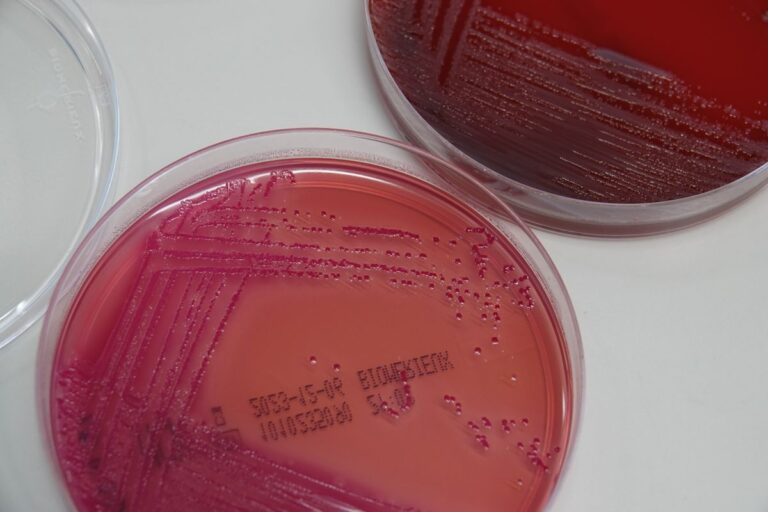:focal(2736x1824:2737x1825)/https://tf-cmsv2-smithsonianmag-media.s3.amazonaws.com/filer_public/7c/26/7c269289-e6e1-4c75-b388-1141615f94af/gettyimages-1895741978.jpg)
A petri dish with bacteria from a stool sample. The researchers found a number of bacteria, fungi and viruses in fecal samples from children that were altered in children with autism.
Christiane Oelrich / picture alliance via Getty Images
A new study has found a link between certain gut microbes and autism in children. The findings suggest that analyzing the gut microbiome could one day aid in diagnosing autism, potentially making the process much quicker and more straightforward, researchers reported Monday in the journal Nature Microbiology.
“Usually, it takes three to four years to make a confirmed diagnosis for suspected autism, with most children diagnosed at six years old,” Qi Su, lead author of the study and a researcher at the Chinese University of Hong Kong, says to the Guardian’s Ian Sample. “Our microbiome biomarker panel has a high performance in children under the age of four, which may help facilitate an early diagnosis.”
Su adds that the study’s model needs to be validated in a more diverse group of children, since most of the kids in the study were from Hong Kong. “The current study is only a start in a long journey,” he says to the New York Times’ Teddy Rosenbluth.
Autism spectrum disorder is a developmental disability that causes people to communicate, interact and learn differently from neurotypical people, according to the Centers for Disease Control and Prevention (CDC). Its cause is unknown, though it’s thought to be connected to genetic and environmental factors, per the study.
There is no medical test for autism, so diagnosing it can be difficult for doctors, who have to rely on children’s behavior and subjective reports from parents. Some people aren’t diagnosed until adolescence or adulthood and miss out on receiving care when they are younger.
Other research has shown there might be a connection between the gut microbiome and autism. Previous studies have found that fecal transplants given from neurotypical people to people with autism improved their symptoms. But most work has focused mainly on the bacterial component of the microbiome—leaving unanswered questions around whether the gut’s archaea, fungi, viruses or functions are affected by autism, the study authors write.
For the new paper, the researchers studied 1,627 children between the ages of 1 and 13, both with and without autism. They found that 14 archaea, 51 bacteria, 7 fungi, 18 viruses, 27 microbial genes and 12 metabolic pathways were altered in children with autism. The researchers then used machine learning tools to identify the children with autism based on their gut microbes with up to 82 percent accuracy, according to the Guardian.
“The results are broadly in line with previous studies that show reduced microbial diversity in autistic individuals. It also examines one of the largest samples seen in a study like this, which further strengthens the results,” Bhismadev Chakrabarti, research director of the Center for Autism at the University of Reading in England, says in a statement from the Science Media Center. “One limitation of this data is that it cannot assess any causal role for the microbiota in the development of autism.”
Early diagnosis of autism can lead to better social and behavioral outcomes, according to the paper. The new findings could pave the way to diagnostic tests for autism that use stool samples, which contain information about the gut microbiome.
Elizabeth Lund, an independent consultant in nutrition and gastrointestinal health who did not contribute to the findings, calls this idea “very exciting” in the Science Media Center statement. “The current [diagnostic] process is very lengthy, and there is a shortage of clinicians such as psychologists and psychiatrists trained to carry out a proper diagnosis,” she adds. “Clearly, the study needs to be repeated by other groups and in other populations around the world, but the approach might offer a novel and more automated route to diagnosis in the longer term.”
Some researchers have also argued that any differences in the gut microbiome in people with autism could be caused by their diets. In the new study, the team found that while diet did impact the gut microbiomes of children with autism, the differences in their microbes persisted even after accounting for dietary variation.
“There is a changing of the winds,” Gaspar Taroncher-Oldenburg, a microbiologist at New York University who has studied links between gut microbes and autism, tells the New York Times. “People are now accepting that the microbiome is not just part of this, but it might be a fundamental piece of the puzzle.”
This article was originally published by a www.smithsonianmag.com . Read the Original article here. .



